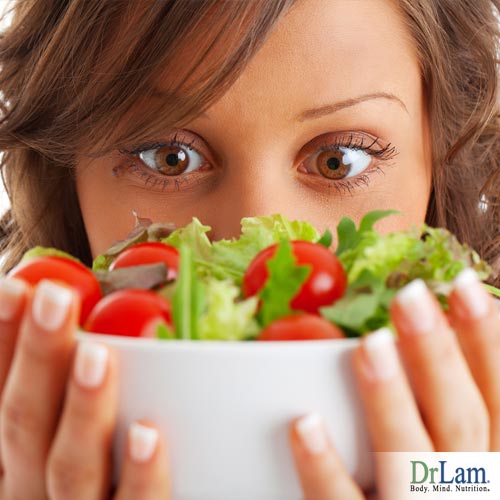 There are many reasons to consider following a vegetarian diet. People become vegetarians for a number of reasons. It may be due to religious beliefs, for health reasons, because of ethical issues, due to the high cost of meat, or because of the influence of family or friends.
There are many reasons to consider following a vegetarian diet. People become vegetarians for a number of reasons. It may be due to religious beliefs, for health reasons, because of ethical issues, due to the high cost of meat, or because of the influence of family or friends.
However, the term ‘vegetarian diet’ can be somewhat confusing, as there are several different types of vegetarianism.
It is possible to get all the nutrients and minerals your body needs by consuming only plant-based food. There are risks as well, however, on a vegetarian diet if you rely too heavily on processed food. These foods, generally speaking, tend to be rather high in sugar, fat (especially unhealthy trans fats), sodium, and calories.
There are a number of different vegetarian diets. What makes them different is the foods they either include or exclude.
A lacto-vegetarian does not eat eggs, meat, fish, or poultry. They do, however, consume milk products (e.g. cheese, yogurt).
Typically, proteins are derived from beans, pulses, legumes, and nuts, as well as soy and dairy products. Consumption of fruit and vegetables is encouraged and may be either fresh, frozen, juiced, or dried.
This is probably the easiest vegetarian diet to follow. These vegetarians eat no meat, fish, or poultry, but they do consume milk products and eggs.
The diet is very similar to the lacto-vegetarian diet with the exception that eggs are included.
Vegans are 100 percent vegetarian. They eat no food derived from animals in any form. Eggs, milk, cheese, butter, and even honey, as it is made by bees, are avoided. Some also avoid enzymes and processed ingredients made with animal products, like gelatin, as well as leather clothing.
According to research, a vegetarian diet may have a number of health benefits, improving or even reversing a number of health concerns. Following a vegetarian diet potentially:
Research strongly suggests that a vegetarian diet reduces your chances of contracting heart disease, and in some cases, may actually reverse the condition. This is mainly due to a lowered consumption of red meat, refined starches, and refined sugars with a higher consumption of fruit and vegetables.
A plant-based diet often contains fewer fats than one based on meat and other animal sources. This is especially true for a vegan diet.
However, the avoidance of all forms of fat is not necessarily healthy, as unsaturated fats have been found to lower cholesterol and thus promote heart health. A diet that is low-fat in nature is often a high-carbohydrate one that promotes insulin release by the pancreas. This hormone is responsible for blood sugar regulation in the body. High insulin levels combined with a sedentary lifestyle may result in weight gain.
It is thus essential that a vegetarian diet incorporate adequate amounts of fats, saturated, monounsaturated, and polyunsaturated, from high-fat plant foods such as nuts and avocados.
 Studies indicate that vegetarians have a lower BMI than those who are non-vegetarian. A child on a vegetarian diet decreases their chances of adult obesity. One of the reasons for this may be the high fiber intake from fruit and vegetables promotes less eating. A high fiber diet tends to leave you feeling satiated for longer, and thus helps you avoid indulging in unnecessary eating due to feelings of emptiness or ‘hunger’.
Studies indicate that vegetarians have a lower BMI than those who are non-vegetarian. A child on a vegetarian diet decreases their chances of adult obesity. One of the reasons for this may be the high fiber intake from fruit and vegetables promotes less eating. A high fiber diet tends to leave you feeling satiated for longer, and thus helps you avoid indulging in unnecessary eating due to feelings of emptiness or ‘hunger’.
Vegetarian diets are usually lower in processed sugars as well. However, eating highly processed vegetarian foods may cause you to gain weight instead, as many contain additives and trans fats that have a negative effect on both your health and weight.
Studies on people following a vegetarian diet found that they had, on average, lower blood pressure levels than peers consuming meat. This may have to do with the fact that vegetarians, generally speaking, consume more fiber and fewer calories than meat eaters and are also generally slimmer. A healthy weight tends to keep blood pressure in check.
This type of diet is also much lower in sodium while being higher in potassium. Both of these play a role in controlling your blood pressure levels.
Type 2 diabetes is preventable and manageable. It may also sometimes be reversible. It is often strongly linked to lifestyle factors and, more specifically, diet. Studies indicate that those on a vegetarian diet have a lower diabetes risk than those who follow a conventional diet.
One of the main reasons for this is that excess body fat is one of the main risk factors for contracting diabetes, while vegetarians, for the most part, tend not to suffer from obesity. Additionally, the saturated fats found in many animal products tend to contribute to insulin resistance, while the unsaturated fats commonly found in plant-based foods tend to protect the body against the effects of saturated fats.
The result is that those on a plant-based diet have better blood sugar levels and a better sensitivity to insulin, with insulin levels remaining within normal levels. This, in turn, leads to more stable blood sugar levels.
It is estimated that diet alone accounts for up to thirty percent of cancer incidents. Cancer is the second leading cause of death in the US.
When working out the statistics of cancer incidents in meat eaters vs. non-meat eaters, researchers found a significant difference in the occurrence of cancer between these two groups. Their conclusion was that a vegetarian diet may be a major factor in cancer prevention.
The study suggests a definite link between lowered cancer risk and a vegetarian diet. This diet has higher concentrations of fiber, antioxidants, and phytochemicals as compared to a ‘regular’ diet incorporating meat for protein. Obesity is also a risk factor for cancer that is reduced among those following a plant-based diet.
 Studies are making it increasingly clearer that a healthy gut goes a long way towards ensuring continued good health. A microbiome that is in balance not only helps with digestion but plays an important role in mental health, cholesterol levels, and immune function, to name a few. The good bacteria in your gut also affects hormone regulation, vitamin production and absorption, and your ability to get rid of toxins
Studies are making it increasingly clearer that a healthy gut goes a long way towards ensuring continued good health. A microbiome that is in balance not only helps with digestion but plays an important role in mental health, cholesterol levels, and immune function, to name a few. The good bacteria in your gut also affects hormone regulation, vitamin production and absorption, and your ability to get rid of toxins
For many though, the microbiome is in a state of dysbiosis, a condition that leads to what is known as leaky gut syndrome or irritable bowel syndrome (IBS).
Research indicates that those who follow a vegetarian diet tend to have a healthier gut microbiome and fewer incidences of IBS than those people who tend to have a lot of meat in their diets. They may also have a better immune function than their meat-eating counterparts. The main reason for their good gut health may be due to the high fiber intake associated with their diet from foods like fruits, vegetables, seeds, legumes, whole grains, and nuts.
Many of the above conditions are also worsened by chronic stress, a major issue in today’s world. This constant stress can lead to other conditions like adrenal fatigue, which has important implications for the best diet for your body. While a vegetarian diet can be beneficial, it’s also important to consider whether a different diet is a better first step.
Some of the symptoms associated with adrenal fatigue include diabetes, high blood pressure, heart palpitations, problems with your digestive system (such as diarrhea or constipation), hormonal imbalances, constant fatigue, inflammation, headaches and/or migraines, and obesity or weight loss for no apparent reason.
The main causes of adrenal fatigue are chronic stress from diet, trauma, insufficient sleep, chronic illness, and environmental factors such as chemicals and pollutants. These all put stress on your body. In order to protect itself, the body’s automatic NeuroEndoMetabolic (NEM) Stress Response kicks in. Prolonged stress, however, results in the body producing too much cortisol, and then too little, which can result in a number of conditions. First, adrenal fatigue syndrome (AFS) occurs, when the adrenals become exhausted and can no longer keep up the supply. Associated conditions can include:
Inflammation especially is a consequence of stress that leads to health issues, and it can exist at low levels in the body for years before problems begin to appear.
 Inflammation is part of the body’s stress response system. It is necessary, as it calls for the body to repair damage due to toxins or pathogenic invaders. Prolonged stress, however, causes sub-clinical chronic inflammation that may cause a whole set of symptoms, including IBS, bloating, food sensitivities, and dizziness. This condition can simmer for years and influence not only your general health but mental acuity and lifespan as well.
Inflammation is part of the body’s stress response system. It is necessary, as it calls for the body to repair damage due to toxins or pathogenic invaders. Prolonged stress, however, causes sub-clinical chronic inflammation that may cause a whole set of symptoms, including IBS, bloating, food sensitivities, and dizziness. This condition can simmer for years and influence not only your general health but mental acuity and lifespan as well.
Conditions that have a strong inflammatory component include cancer, early aging, asthma, lupus, fibromyalgia, stroke, acid reflux, skin conditions like psoriasis and acne, diabetes, high blood pressure, heart disease, and many more.
To avoid these issues, it is important to manage stress and any issues due to AFS before taking on other dietary protocol.
Like many of the different types of plant-based diets, the adrenal fatigue diet involves many healthy fruits and vegetables. However, it focuses on eating less of those foods that make adrenal fatigue worse while eating more of those that provide high-quality fuel, help you function, and nourish your adrenals.
Typically, an adrenal fatigue diet has the following components:
Vegetable intake: 30 to 40 percent
Lean protein: 20 to 30 percent
Healthy fats: 20 to 30 percent
These healthy fats are ideally derived from olive or coconut oil, seeds, and nuts.
The remainder of this diet should be comprised of fruits, beans, legumes, and whole grains. Foods high in sugar should be avoided, as they elicit metabolic reactions resulting in imbalances in blood sugar levels that may impact your insulin sensitivity.
The adrenal diet focuses on vegetables as the main food source, so substituting non-meat sources for protein can easily result in a vegetarian diet. For example, you could substitute meat for soy, quinoa, or buckwheat. This would allow you to reap the benefits of an adrenal fatigue diet and the benefits of a vegetarian diet at once.
Before deciding whether to adopt a vegetarian diet or not, it is worth considering the pros and cons of this kind of lifestyle.
It is easier to control your weight.
Those following a vegetarian diet are less likely to become obese due to lower calorie consumption and the high fiber content of their diet.
There are possible health benefits.
Vegetarians are at a lower risk of contracting heart disease, high blood pressure, and diabetes.
It is good for bone health.
A vegetarian diet is high in calcium from dark green vegetables, kale, broccoli, tofu, and soybeans. Those who are not vegan also consume a lot of calcium from dairy. These foods also tend to be high in proteins, antioxidants, carbohydrates, and vitamins.
It eases the symptoms of menopause.
A vegetarian diet is rich in phytoestrogens. These are dietary estrogens that function in the same manner as estrogen, the female hormone.
It saves you money.
Fruit and vegetables are relatively cheap compared to meat and meat products. Turning to this kind of diet may potentially keep a lot of money in your pocket.
 There is a risk of developing nutrient deficiencies.
There is a risk of developing nutrient deficiencies.
A vegetarian diet can have all the nutrients your body needs. However, vegans risk having a deficiency in vitamin B12, which is usually found in animal products such as meat, fish, poultry, eggs, milk, and cheese. Thus, it is important to obtain this vitamin from fortified sources. There is also a risk for an omega-3 shortage. Omega-3 fatty acids are typically found in oily, fatty fish. Walnuts, flaxseed, and some types of algae provide this fatty acid, and they can also be used for dietary supplementation to fulfill this need.
Health benefits are not automatic.
Vegetarians who still have diets high in sugar and processed foods will not necessarily see the same health benefits as those who cut these foods out of their diet.
Getting enough protein can be difficult.
Your body needs protein to function correctly, and vegetarians are at risk of not getting enough. It is only by paying strict attention to what they eat and incorporating adequate amounts of plant protein in their diet can vegetarians be sure to get enough.
Food and social challenges
Social settings and restaurants very seldom cater to the vegetarian palate. Choosing a meal that has all the nutrients you need can prove to be quite a challenging experience. You may have to bring your own food to social gatherings.
However, in the long run, adopting a vegetarian diet can have many benefits for your health and your wallet. As long as you are intentional about getting certain nutrients like protein and vitamin B12, vegetarianism can be a sustainable way to take better care of your body and the environment.
While a vegetarian diet is of benefit in managing adrenal fatigue and helps support adrenal recovery, vegetarians can still suffer from adrenal fatigue. Although your eating habits contribute towards the development of this condition, they are not the only factors that bring it on. Stress, possible trauma, and environmental factors are also involved.